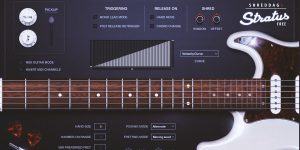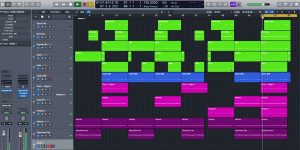Home sound studios have become increasingly popular in recent years, offering a cost-effective and efficient way to record music. Whether you are a solo artist or part of a band, having your own home studio can provide many advantages over traditional recording spaces.
However, it is important to understand the pros and cons before investing in one. In this article, we will take a look at some of the benefits and drawbacks of setting up a home studio so that you can make an informed decision about whether it’s right for you.
The advantages of a home studio
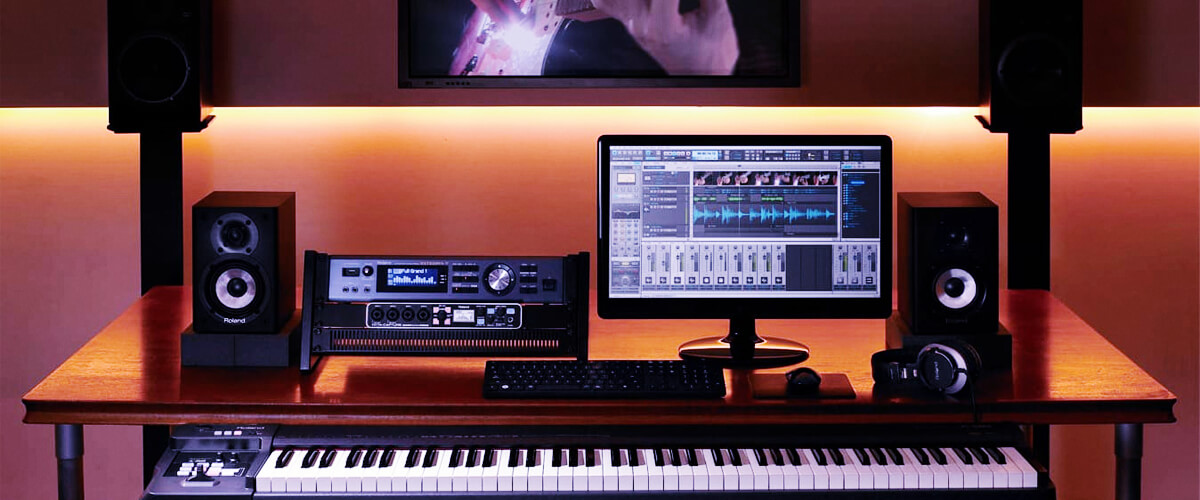
Save Time And Money
One of the biggest advantages of having a music studio at home is the ability to save time and money. Booking an expensive studio time can actually cost you a small fortune if you’re a solo artist doing full-length albums. Instead, you can build your studio and invest in two really important things – top-notch audio gear and your creativity. This way, you’ll be able to record as often as you’d like without any additional expenses and create professional commercial tracks from the comfort of your own home.
Make More Money
Your own recording space brings up a plethora of revenue-generating options. You may, for example, invite other artists to recording sessions or rent out your studio to earn extra money from bookings. Plus, when you have time, you can make short commercial jingles.
You Have All The Control
Having a home studio, you are in complete control of your creative process. If you spontaneously came up with an interesting idea, you can implement it almost immediately since all your instruments and equipment are at hand. In addition, you do things on your own schedule – arrange a session or jam at any time that is convenient for you.
The disadvantages of home studio
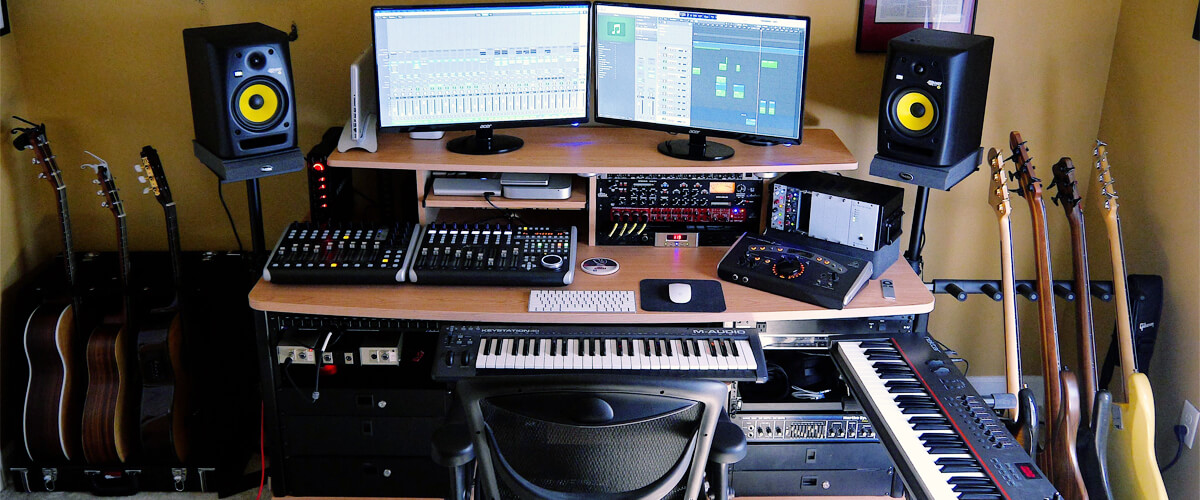
Initial investment
Before you start building a home studio, do consider your budget! Make sure you have enough money to invest in both high-quality equipment and the right room.
You may be surprised to learn that building a proper room is even more important than buying cutting-edge machinery. It’s better to have a good microphone record in an excellent space with little to no reverb or echo than to have a top-quality microphone record in a poor room with many reflections, phase subtraction, and distortions.
Knowledge beyond music is required
For a decent recording and listening experience, you need to clearly understand what you are doing. Firstly, learn more about the acoustics and acoustic treatment of the room you’re going to use as your studio. Secondly, you should understand how to find the sweet spot and listening position in your recording space. Finally, in order to get better sound quality, you must know the basics of signal flow and recording fundamentals.
Maintenance Of Equipment
It is you who will take care of the equipment – you must know how to clean it properly and check its efficiency. And if suddenly something breaks down, you will need to find a service that could solve your problem.
Summing up
Having a home studio is a good option if you are serious about being a musician or sound engineer, even if it’s just a hobby for you now. This requires significant time and financial investments. However, all your efforts will be rewarded as soon as you start working with clients or choose ways to monetize your music.
On the other hand, if you just want to test the waters and record several demos, it would be wiser to spend time and money on a professional studio where you’ll get a quality result of your work. This way, you will be able to tell if you enjoy your song after it has gone through the entire professional chain and understand whether you want to go on with music creation.

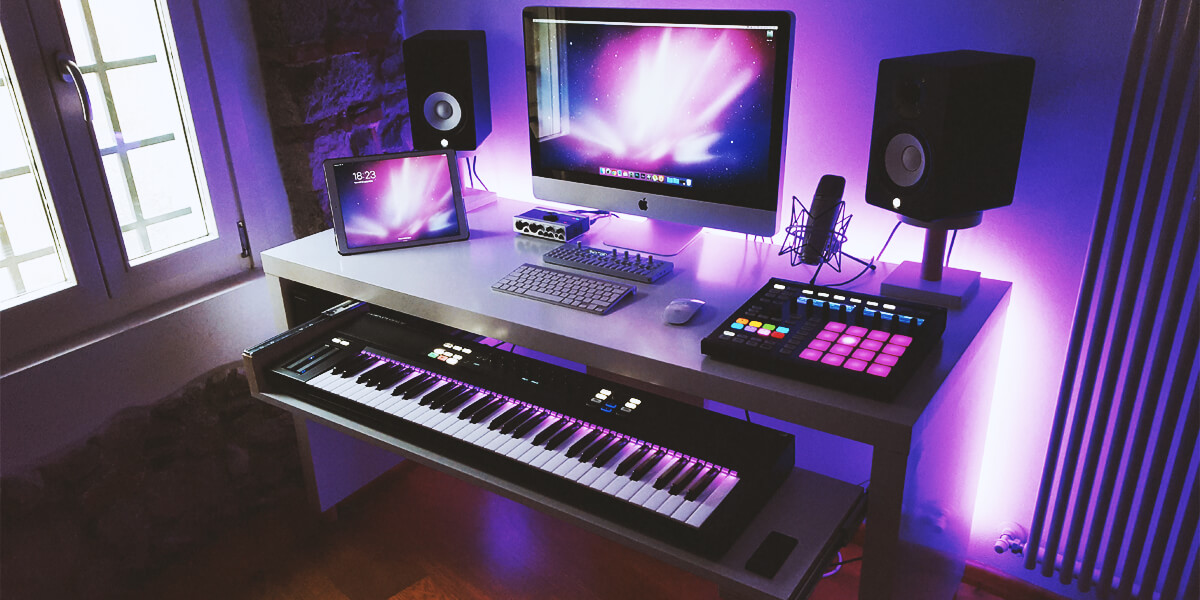



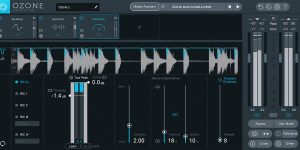
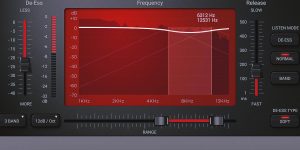
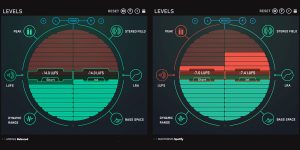
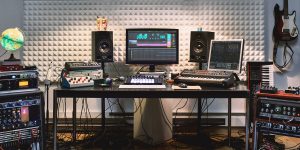
![What exactly makes a song good? [The Hits Anatomy]](https://dopevst.com/wp-content/uploads/2023/08/what-makes-music-good-300x150.jpg)
